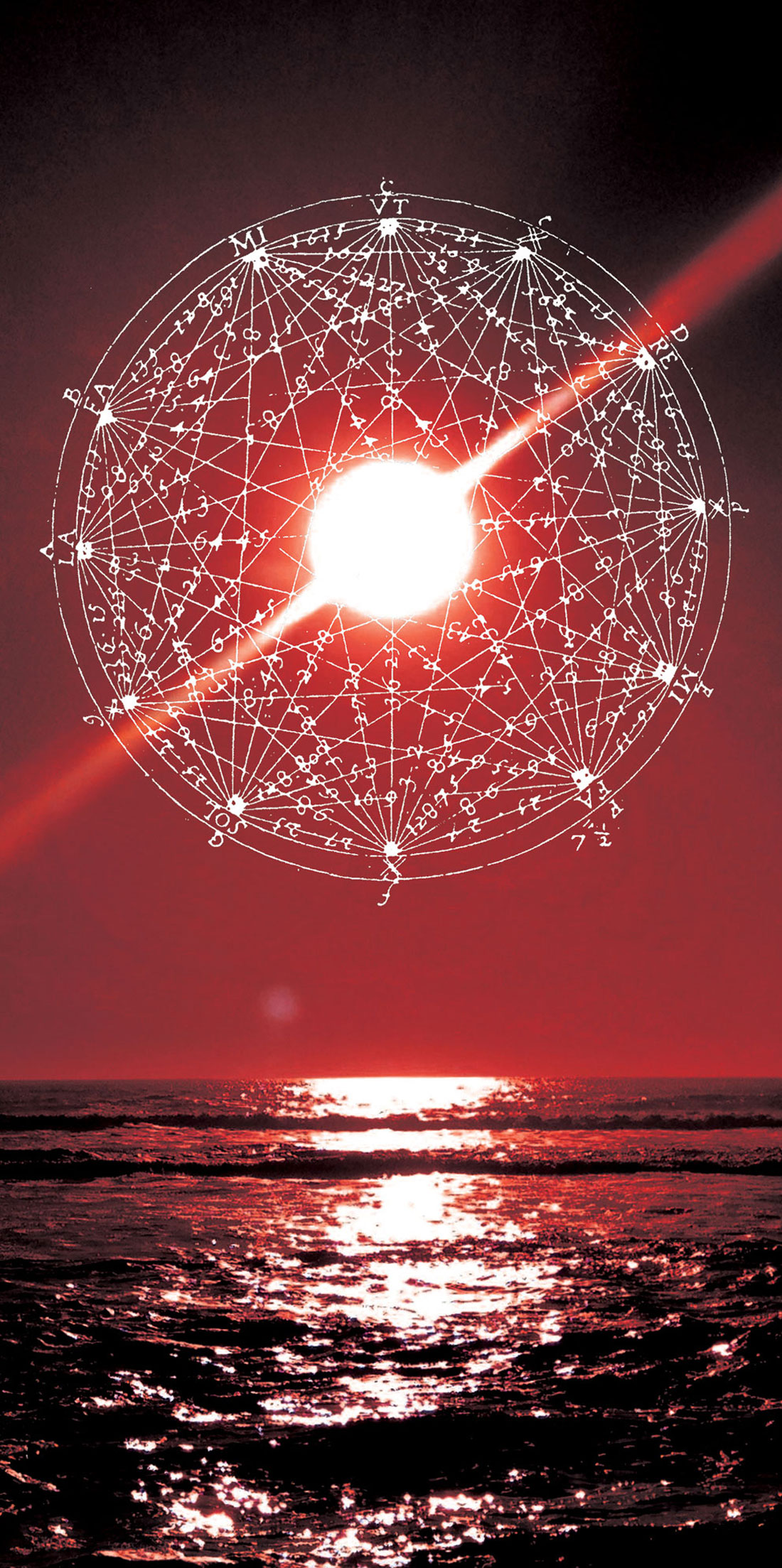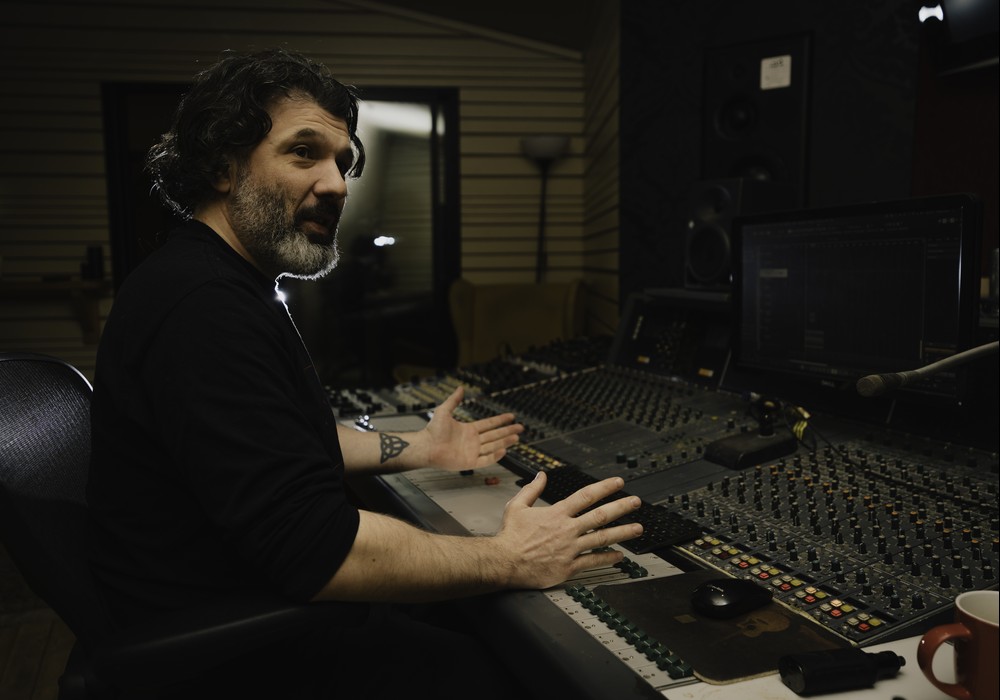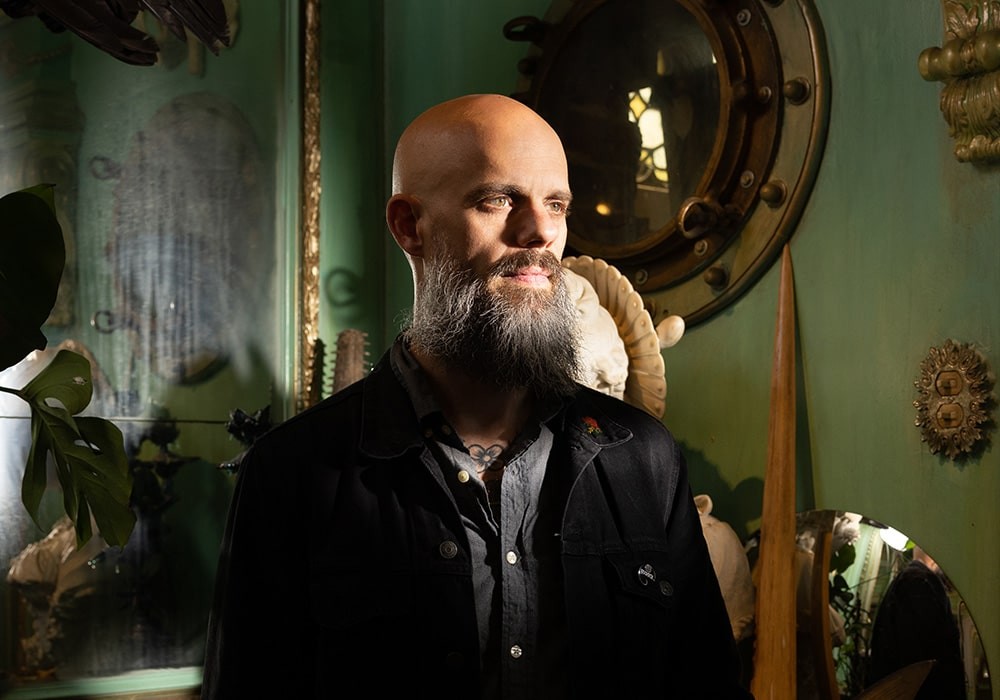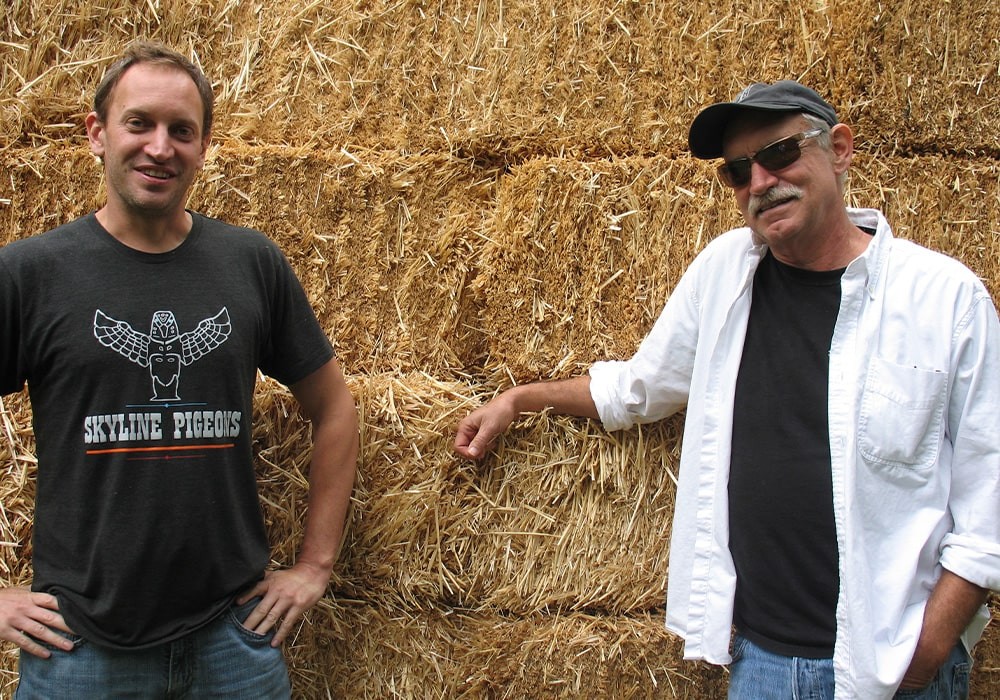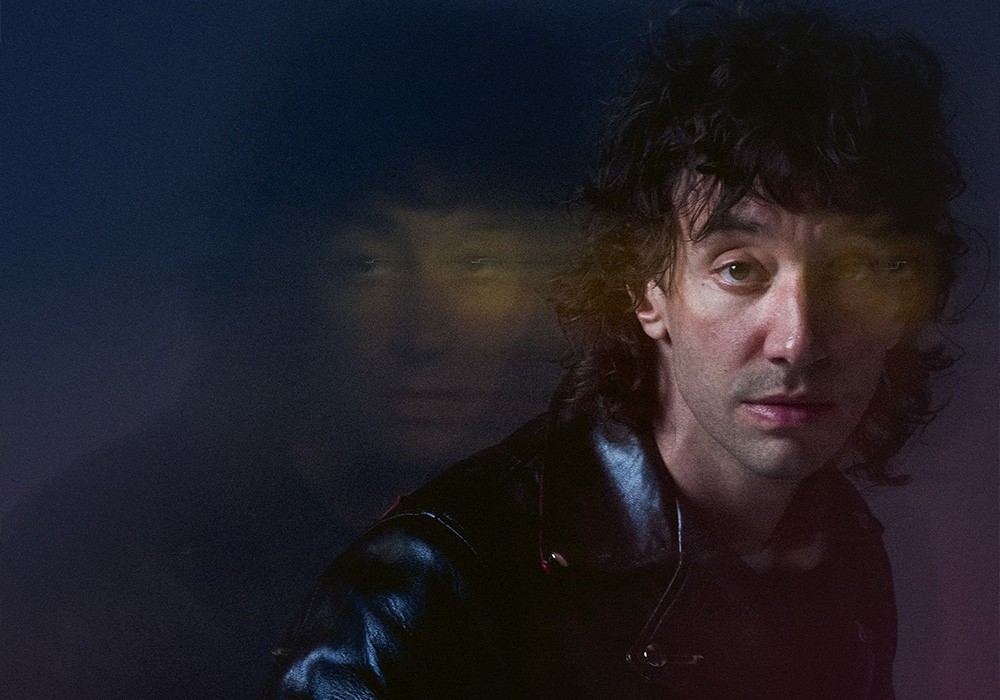In 2006 the world lost Arif Mardin, a classic (and classy) record producer and arranger who'd originally worked at Atlantic Records for over 30 years, producing hits for artists like The Bee Gees, Aretha Franklin, Bette Midler, Hall & Oates, and later working with singers like Norah Jones and Jewel. Recently the Grammy nominated documentary The Greatest Ears in Town: The Arif Mardin Story was released on DVD, and it's a loving tribute to the man and the producer. While I was watching this film I began to notice the presence of Joe Mardin, Arif's son, who acted as co-director (with Doug Biro), producer, and sometimes interviewer for the film. He even co-mixed the soundtrack with Arif Mardin's longtime engineer, Michael O'Reilly. I was curious what Joe's life was like growing up in the Mardin family, and how he'd also followed a career of music production, engineering, writing, arranging, conducting, and even drumming. I visited Joe at his Manhattan-based NuNoise Studio for a journey into remembering his father's career and how it has affected his own life.
Would you ever make another documentary on people you've met along the way?
It's funny. I love film, and I really kind of consider myself a little bit of a student of film. I read film theory, I watch silent films, and I really have a fascination for French new wave and the Italian neo-realists. I love film, and I'd love to make another film, but not the way we made my father's film, because I basically made it with my family's money, without any infrastructure. I had wonderful editors and my co-director and all that, but I didn't really have any business help. Just clearing the music alone, between myself, the one person who works with me, and my lawyer, was a lot of work. Then all the other stuff that followed, and promoting and dealing with it... even though I have a distributor, it took years from my life. It was an honor, and I'm very glad to be able to leave this document not only for my family, but for music and posterity. I couldn't do it the same way again. But making films is fascinating. My father always looked at making records as being a bit like a director in a way. In a film, it's the director's movie, and with a record, it's the artist's record, but you really are sort of directing musicians. Dealing with the script is when you're dealing with the songs. When you're dealing with the artists and musicians, you're dealing with the interpretation and the reading. There are really many analogies. The engineer is kind of like the cinematographer, or maybe you're engineering yourself and working with colors and framing and all those things. I think that making a film and a record are very analogous, at least conceptually. You really try to manage creative contributions from many different people and how their contribution touches the final product and vision. I think Walter Murch talked about that a lot in making films. He's one of my heroes, Coppola's sound editor and a brilliant guy. He talked about how the director is almost the immune system of the film. All of these artisans and craftspeople come in: editors, musicians, actors, writers, and they all put their fingerprint on the film, but the director is the final sort of arbiter or immune system, so to speak, as to whether all of those things will work or not work, and what the body sort of rejects as far as what that organ or film is. I think a producer functions that way, and obviously you have the artist in that situation. With an artist, you obviously have to look at their instincts, and that's very important. I'm going off in all sorts of directions, because I don't know what the future is. I don't know if anybody knows. There's certainly a lot of music going on. I think there's a lot of wonderful music and creativity going on everywhere. I just don't think there's a lot of it in the mainstream. There are definitely some good things in the mainstream. I don't think you can say that it's totally void, even with all of the horrible stuff that's going on.
Songs that are poppy and feel kind of fluffy and throwaway might still hold value to people a few years on.
Absolutely. I've never had a problem with great pop music, like what was on WABC AM radio when I was growing up. "Goodbye Yellow Brick Road," or "Crocodile Rock," if you want to be more bubblegum about it. I never had any problem with that, and I still don't. But it has to come from some kind of a passion. There has to be some kind of a love. If you love bubblegum pop music, make the best, most delicious confection of pop music that you possibly can that's really enjoyable, because at the end of the day, we're doing something for people's enjoyment as much as we are for the sake of making art. It's an interesting balance, isn't it?
One of the things I really want to talk about is arrangement. Gravitating into the mixing and the recording process, so much of what really works is arrangement still, even if you're just doing slight things with mixing.
You're absolutely right. It's so important. You can certainly put things out of proportion with all this technology, but you kind of have to know that's what you're doing. I remember Quincy [Jones] once said that he loves to cook, but if you put a little bit too much lemon in something it overwhelms the dish, and that's what the piccolo does. You have to know how to use it so that it doesn't cover up the whole texture. I think things like the triangle and certain brass instruments will do those kinds of things. Now can you EQ the hell out of it, compress it, and pan it off somewhere so it doesn't? Yeah, but you have to know that's what you're doing and why. Arrangement is so key, and it's become key to the point where some producers who aren't nuts-and-bolts orchestrators become really good at muting. Arrangement is super-important. Getting the form right is super-important too, even in this day and age of pop records being pretty much the same energy from beginning to end. It's not like it was 20 or 30 years ago when even a single had an arc in a certain way; sort of a beginning, middle, and end. I think the energy on most records today is the same if you happen to queue anywhere along its timeline. I still think getting the form is important, getting that feeling of how it ebbs and flows. That's part of arrangement for sure.
Yeah. I'm trying to get all my interviews to bring this up a little.
It's so important. I was watching some videos this morning as I was getting ready, and the '80s thing was on on VH1 Classic. "If it Isn't Love" comes on by New Edition. I had the sound off, but I turned the sound on for that one. I remembered liking it 25 years ago. It's so musical. It was musical then, but compared to most R&B records you hear today, there are these beautiful arpeggios and filigrees that take you into the chorus and stuff. Most people making records these days wouldn't even understand what scale that was. That was a cutting-edge record for that day, and that level of musicality is now almost like Mozart. Those beautiful musical arrangement things that end up having great production values, being great hooks, and having value in the marketplace come from the place of someone who has musical values. It's so important.
I find DAW-type recordings make it very rigid about what comes in on the chorus. It's always in and always out, a very 4/4, boxed-in deal.
Don't you think that people have been much too connected to their eyes, since the screen is there all the time?
I flick it off a lot during playbacks and mixing.
I've noticed that people say, "Oh, it's not really on the grid." I tell them not to look. Just listen. It's an interesting place that we've come to, because everything is so hyper-real now. There's an element of seeing producers or other peoples' session or work, and they feel like it's just good hygiene to tune everything. I think that people develop a fear that it's not going to sound radio-friendly if it's not perfect, but I don't know if that's what the public really wants. I'm not sure. There's a lot of loose tuning on those Adele songs, and the public reacted. They certainly didn't go crazy Auto-Tuning her vocals, and maybe that's a lesson in a certain way. She's selling humongous amounts of records.
I think it feels more human to people, compared to other pop stars at the moment.
Yes. You wonder... these are the questions I ask myself too. Should I change that? Will it work? What's really important to most listeners? Where is that place where it's going to make a difference to most people or not? I don't know. Our ears become hypersensitive and hyper professional with all this work. Is most of what we hear even important for what we're coming up with in the final product? There's no answer, of course.
This is a cool studio space.
Thank you. It works out really well. It's worked out quite well here, and other mix engineers have come in and used the studio too and have been very happy with what they've taken to mastering. The room has worked out very well, and it's quite small as you can see. Not the office area, but this is only about 600 square feet. It does raise an issue in terms of how many more years I can have a studio in midtown Manhattan. I don't know if that's going to be totally possible five years from now, but for the time being I'm here. I have projects and things I have to do, and there's always stuff coming up.
Is there any typical day for you?
No, and in a way I'm kind of lamenting that. I sort of wish there was. I'm so busy with so many different things, that I'm not here as much as I'd really like to be.
We've got a bunch of the same equipment. I like all the Chandler stuff, the Germanium pre and the TG2, the 610. Yeah, the TG-2's quite good.
These [Urie] 1176's are from Atlantic Studios. I'm missing an Altec, another one's in the shop, but this one, the Omnipressor and the other one are from the old Greene Street Studio in SoHo where I used to do a lot of work.
How did you end up with equipment from Atlantic's studios?
When they shut down in '89 they sold a bunch of things. Those were crazy times. I remember Arif bought the Pultecs and I bought the 1176s, and I think they sold them for $200 or $400 each or something, because at that time, nobody cared about those things. It was the height of the SSL thing, but there were microphones and things that we could have bought that we didn't even think about! I could have bought [Nuemann] U 67s and M 49s for nothing. And Fairchild [limiters], because nobody cared about that stuff yet. Maybe in L.A. they did, but in New York, that was not important. Everybody was cutting on SSLs. I was one of the few people trying to make an SSL not sound like an SSL those days, by inserting a Pultec on the mix buss and stuff like that.
We both certainly have this experience of seeing how far you can push a singer to get takes and to see what they might be able to pull off.
That's such a good point. Unless you work with somebody a lot, you're not exactly sure. Then there's that Kubrick thing. Especially from what I understand in later years, he'd do scores of takes, but really to drive the actor crazy. Nicholson gives that performance in The Shining because Kubrick kept asking for more, but he wasn't really saying what he needed. He got this sort of insanity out of him. I'm not saying to do that with a singer. Or take Elia Kazan. He would say things to people on the set or manipulate people. They were fascinating methods. Maybe not the kindest methods sometimes, but I'm sure those actors look at their performances, like Rod Steiger in On the Waterfront, and think that they wouldn't have been able to do that if the director hadn't said something before the camera rolled. It's fascinating to look at directors for those kinds of things.
It's always something to consider. Many engineers have had to become producers. You have to graduate into that in a way, where you're really able to bring something to a project that maybe the next guy who's $10 less can't do.
That's totally true. It's so interesting, though. I'm sure you've had a lot of experience with this: dealing with bands as opposed to single artists. Bands are ecosystems. It's kind of like you might have great ideas for them, or a great idea for one particular thing, but you have to kind of filter it and see whether it's a great idea in the absolute, and whether a great idea in the absolute is great for this band, or whether it's just taking them away from who they are. It's always a question in a certain way. Maybe it is a great idea, and maybe it's the thing that takes them to the next place. Maybe it's who they should be. It's such an interesting place that you hold when you're a producer with a band.
You have to be so careful and examine the weak links.
At the end of the day, what makes this mass of moving molecules of air or whatever that we capture that comes into the room and satisfies either us or our target listener in terms of being a complete sonic, musical statement? What makes a record?
That's a big question.
Yeah. I think Arif would have all these ideas and end up with things that make you think, "Wow, I wouldn't have thought of that." It ends up being this unique thing. Like when he asked Barry Gibb if he wanted to take it up an octave, and he said he couldn't sing it full-voice, so he'd try it falsetto. Then you end up with this sound that nobody was expecting and that became the focus of their records for ten years after that.
That's some brilliant thinking.
Yeah. It's two in the morning, it's the fade of the record, and, "I need some ad-libs." It wasn't like, "How can I completely re-invent The Bee Gees and pop music?" No, they were in the trenches trying to make things work.
Yeah, that's when things happen, if you're ready for it.
Exactly. If you're ready for it.
